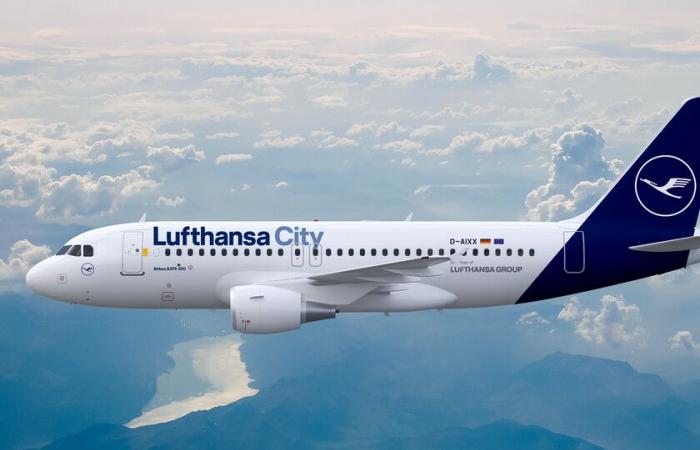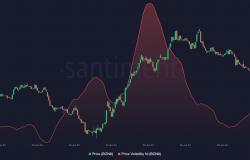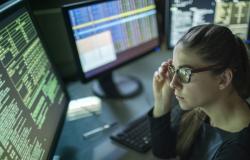
-
The price of the ticket will increase between one and 72 euros due to a new “surcharge for environmental costs”
-
Lufthansa hides behind the increase in costs derived from European legislation
Lufthansa flights will be more expensive starting today, June 26. The company is going to start charging a surcharge of up to 72 euros on tickets issued from today with the aim of covering the use of more sustainable fuels and covering “part of the constantly increasing additional costs” derived from European environmental requirements. But, let us start at the beginning.
Fit For 55. This is the name of the package of measures to reduce emissions and fight climate change that the EU approved in 2021. One of the objectives is to increase the use of sustainable aviation fuels (SAFs, for its acronym). Sustainable Aviation Fuels) and, in that sense, by 2025 the minimum proportion of SAF should be 2%. The figure increases to 5% in 2030; 20% in 2035; 32% in 2040; 38% in 2045 and 63% in 2050.
According to the CEOE (PDF), it is estimated that the use of these fuels could significantly reduce air transport emissions, which account for 2.5% of CO2 emissions globally. However, in this report they point out that “this type of fuel has a significantly higher cost than conventional fuels” and that this “poses serious difficulties for this policy.” The reason is simple: fuel already represents 25% of the operational costs of air transport, so the adoption of SAFs could increase the figure.
Not only that. Another modification contemplated by the Fit For 55 package is a reduction in the emissions trading scheme (EU ETS), which will be reduced at an annual rate of 2.2% (compared to the current 1.4%). Basically, an airline can go over the emissions limit in exchange for buying the emission rights of other organizations that have not reached the limit.
Airlines can offset their emissions by purchasing emission rights from other airlines.
Let’s say the limit is 100 tonnes of CO2. Airline A has emitted 140 tonnes and Airline B has emitted 60 tonnes. So Airline A can buy the 40 tonnes it needs from Airline B to reach the limit and be “in the clear”. If it doesn’t, it would face penalties. What happens if we shrink this market? The purchase price of emission rights increases, which is designed to reduce the attractiveness of buying emission rights and encourage investment in renewables.
Impact on the user. Hiding behind this increase in costs, Lufthansa has announced the introduction of a surcharge for environmental costs, a surcharge intended to cover “part of the additional costs” derived from the previously stated demands. As explained by the airline, this surcharge will apply to “all flights marketed and operated by the Lufthansa Group departing from the 27 EU countries, as well as from Great Britain, Norway and Switzerland.”
As Luftansa states in a statement:
[…] The airline group cannot alone bear the additional costs that will arise due to regulations and will gradually increase in the coming years. Part of these costs planned for 2025 should now be covered by the new environmental cost surcharge.”
Up to 72 euros. The amount of the surcharge will vary depending on the route and fare and will range between one and 72 euros. According to the operator, “it will be charged for all tickets issued from June 26, 2024 and applies to departures from January 1, 2025.” In any case, the final cost will be shown during the purchasing process.
Flying is increasingly expensive (and tedious). This is the last of the measures adopted, but it is not the only one that increases the price of flights and worsens the user experience. For example, currently it is common to have to pay to choose a seat and there is no standard for the size of the carry-on suitcase, but rather the measurements are set by the airline itself, as well as whether or not to charge for it. This carry-on bag charge is something that shouldn’t happen, but it still happens.
Special mention deserves the case of Ryanair, whose CEO already announced that this summer flights would be 10% more expensive to compensate for the delays of the Boeing 737 Max 9. In the specific case of Spain, the National Markets and Competition Commission ( CNMC) approved a 4.09% increase in airport fees established by Aena. That will translate, according to Aena, into an increase of about 40 cents per ticket.
Finally, it is also worth mentioning the initiative of United Airlines. The operator, which will transport 145 million people in 2022, intends to convert the infotainment system screens into an advertising platform on which to display ads.
Image | Lufthansa
In Xataka | In 2012, scientists purposely crashed a Boeing in the desert at more than 200 km/h. They had a good reason





